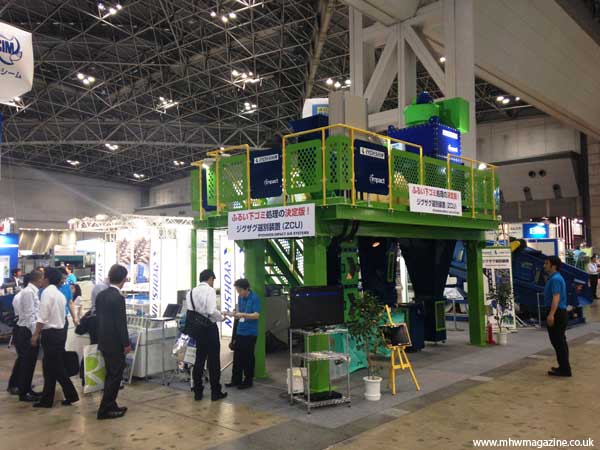
With the National Resource Strategy high on the agenda across the globe, and Japan appearing within the top three wasteful countries in e-waste with a volume of 2.2 million tons in 2013*, Impact realised an opportunity to showcase its Zigzag Classification Unit at N-Expo, Japan, to demonstrate its waste separation technology using air to recover valuable materials, along with trade partner Ryohshin.
E-waste is one of the most overlooked recyclable resources, with extremely high value precious metals such as copper, iron, aluminium, silver and gold unrecovered and sent to landfill. Reports estimate that only 24-30% of e-waste is treated in Japan, although 556,000 tons were collected and treated in 2013, it is still only one quarter of the total. The ever increasing focus on reducing waste ending at landfill is also high in priority to the Japanese with a favour to sort and recycle bulk waste due to the cost of incineration and lack of land space.
Impact’s Zigzag Classification Unit (ZCU) has been successfully providing an efficient density separation solution for waste management companies with the ability to handle a wide range of materials, including e-waste. With specific adjustments to ensure maximum efficiency, the Zigzag is the obvious choice to recover valuable materials and reduce the amount of material sent to landfill.
N-Expo, Japan, has proven to be the perfect platform for Impact to showcase its globally successful Zigzag density separation technology, which has been recovering valuable materials and providing a low-cost solution to many waste management companies throughout the world.
A busy few days at the exhibition secured some new clients and on the spot orders for the innovative system.